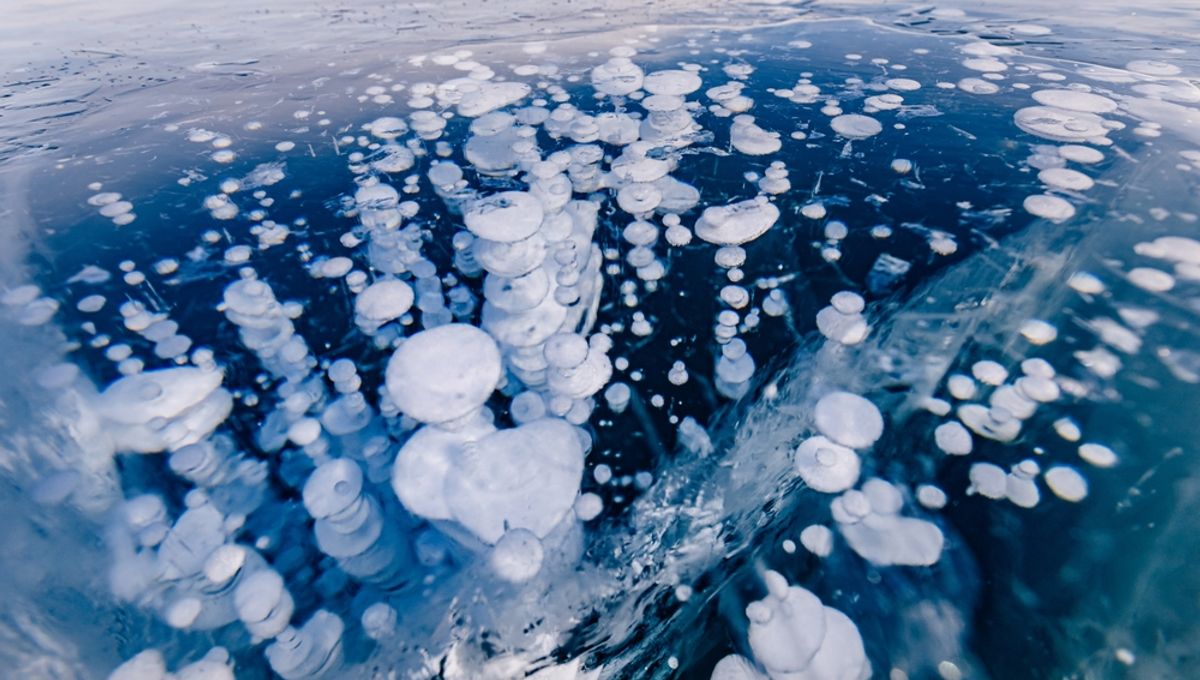
The virus behind the next pandemic could be quietly lurking in the High Arctic, ready to be released by thawing ice due to climate change.
Arctic ice is known to harbor an array of viruses, many of which are unknown to science. Whilst they’re locked in ice, they pose little threat to us or any other part of the ecosystem. However, if this ice melts, it opens the opportunity for viruses to “jump” into a host – whether it’s humans, another animal, a plant, or fungi – and continue to replicate and spread.
In a new study, scientists at the University of Ottawa looked at how serious this risk was by examining samples from Lake Hazen in Canada, the largest freshwater north of the Arctic Circle.
Here, they tested for DNA and RNA around the lake sediments to understand what species are living here. This data was then plugged into an algorithm that worked out the chance of a viral spillover, whereby a novel virus infects a new host for the first time.
The findings showed that the risk of viral spillover was highest in areas closest to melting glaciers. Considering that many of the world’s glaciers are thawing due to rising temperatures, it’s safe to say that the climate crisis is also increasing the risk of spillover from novel viruses.
Paired with this, climate change will also force animals to move their range further north into the Arctic where temperatures are cooler. This is another factor that’s likely to up the odds of a viral spillover occurring.
“Resorting to a comparative analysis, we show that the risk of viral spillover increases with runoff from glacier melt – a proxy for the effect of climate change,” Stéphane Aris-Brosou, associate professor in the Department of Biology at the University of Ottawa, said in a statement.
“Should climate change also shift species range of potential viral vectors and reservoirs northwards, the High Arctic could become fertile ground for emerging pandemics.”
Much of this remains hypothetical for now, but it’s a problem that has already been flirted with. In 2016, dozens of people fell sick with anthrax in the Yamal Peninsula in Russia.
The depths of Siberia were notorious for its recurring outbreaks of anthrax in the early 20th century, but they had largely become a thing of the past thanks to deer vaccinations and a better understanding of the disease. This latest outbreak, however, was blamed on a heatwave that had melted permafrost in the area and exposed an infected reindeer carcass in the Siberian tundra.
Fortunately, the world was already well-versed in battles against anthrax and the outbreak was contained. However, the worry is that the melting Arctic glaciers could someday release a novel pathogen that human immune systems and medical inventions are not prepared to deal with.
“As both climate change and pandemics are reshaping the world we live in, understanding how these two processes interact has become critical,” said Aris-Brosou.
The study was published in the journal Proceedings of the Royal Society B.
Source Link: Melting Glaciers May Spark The Next Pandemic